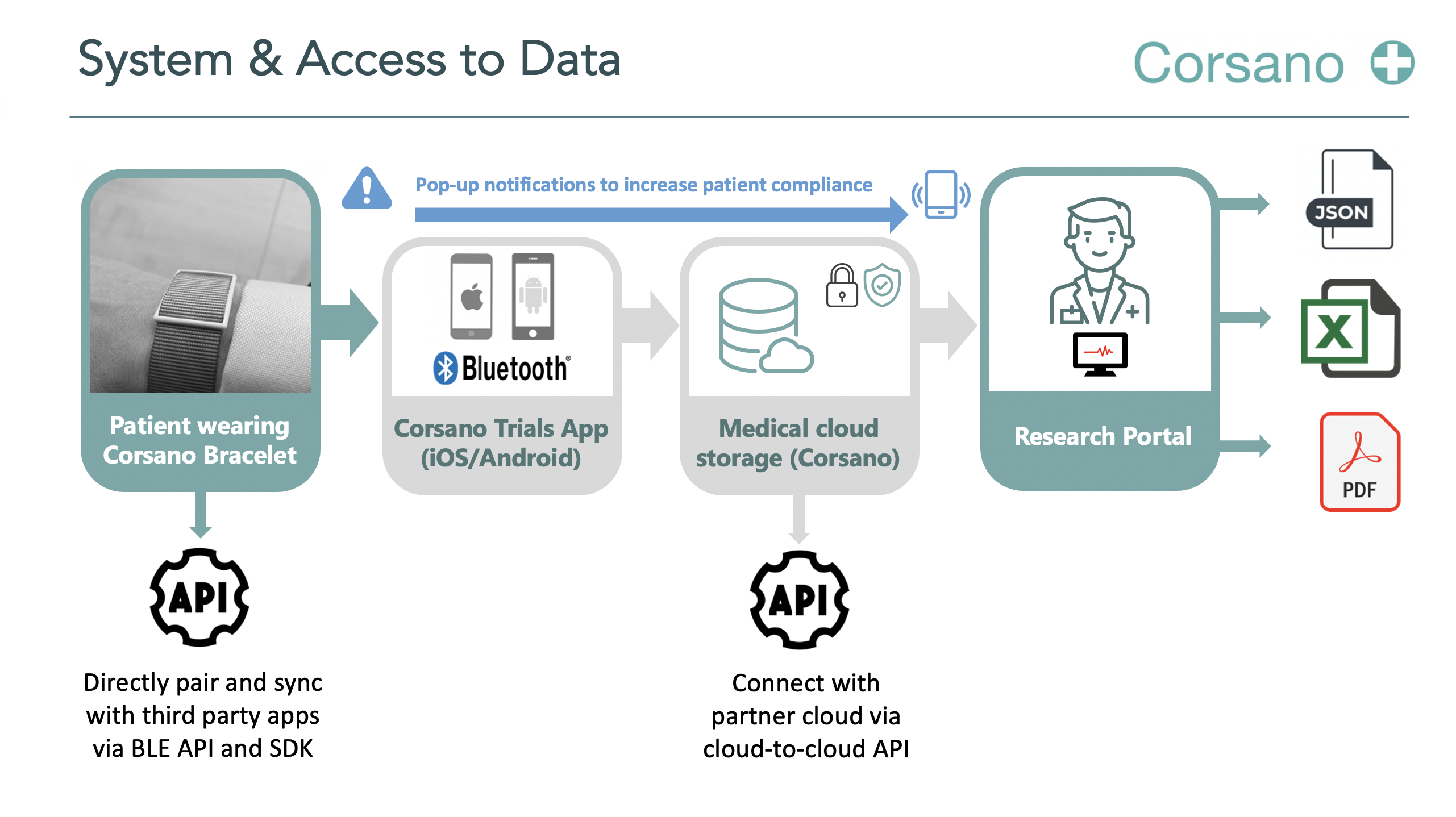Title
Determine AF Burden with PPG Trial – Detection and Quantification of Episodes of Atrial Fibrillation Using a Wearable with Photoplethysmographic (PPG) Sensor
Topic
Evaluation of the performance of the Corsano Cardiowatch 287 Bracelet in identifying AF episodes and determining the AF burden in patients with known paroxysmal AF
Number of Participants
100 patients with known paroxysmal atrial fibrillation
Inclusion / Exclusion criteria
Inclusion criteria:
Known paroxysmal atrial fibrillation
Patient ≥ 18 years old
Written informed consent as documented by signature from the patient
Exclusion criteria:
Cardiac implanted electronic device (Pacemaker, ICD)
Bracelet cannot be worn due to comprehensible reasons (allergic reactions, wounds, amputations, other)
Unable or not willing to sign informed consent
Significant mental or cognitive impairment
Currently enrolled in another clinical investigation in which the intervention might compromise the safety of the subject's participation in this study
Study Design
In this trial patients with known paroxysmal AF wear a PPG wearable (provided by Corsano) and measure continuous PPG over 48h.The PPG data will be stored on a smartphone app connected to the wearable. Simultaneously the ecg signal will be recorded continuously by holter ecg. The PPG data will be downloaded manually and the AF algorithm analyzes the PPG data to screen for AF episodes. The ecg data will be evaluated by two independent cardiologists blinded to each other and in agreement with the aim to identify AF episodes. The results of the PPG analysis and the results of the ecg evaluation by cardiologists will be compared.
Target points
Primary outcome:
Detected atrial fibrillation (in comparison to simultaneously recorded continuous Holter-ECG)
Secondary outcomes:
Overall duration of the atrial fibrillation episodes and AF burden per 24h
Asymptomatic episodes of atrial fibrillation
Measurement procedures
Reference for assessing the performance and accuracy of the AF algorithm are the diagnoses of the cardiologists based on the ECG data.
Study Centre
Cardiology Centra Netherlands Location UMC
Start time, Duration
Q1 2021, 12 months
Interested in our Trial Programme?
Corsano Cardiowatch Bracelets enable continuous monitoring with multiple algorithms. Corsano is working closely with cardiologists, scientists, hospitals, patients, and research organisations. Scientific research demonstrates the legitimacy of Cardiowatch 287 algorithms.
We are currently performing pilots with selected clients. Contact us if you want to know more!
The founders of Corsano Health have over 100 years of experience in the Swiss Watch industry, with deep experience about ergonomic design and materials for wearables that are worn 24/7.
